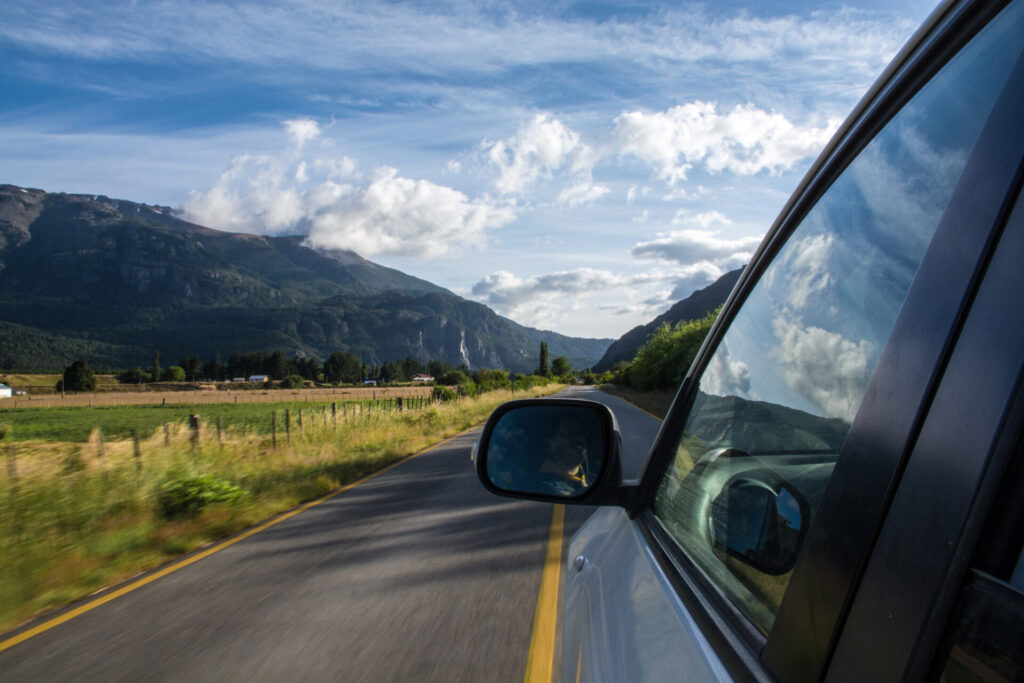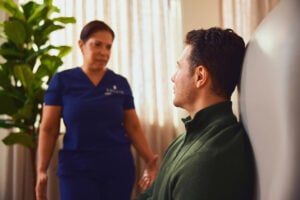
Motion Sickness
Motion sickness happens when your brain receives conflicting information from your eyes, inner ears, and body. The brain’s confused reaction makes you feel sick, from cold sweats, dizziness, and fatigue to nausea, vomiting, and rapid breathing.Wondering how to prevent motion sickness? Choose your seat wisely: the front seat of a car, the window seat of a bus, the middle of a boat (ideally on the upper deck), a forward-facing seat on a train, and the wing section of a plane. Stare at a fixed object in the distance, avoid reading or looking at your phone, wear acupressure wristbands, and recline your seat back and close your eyes if you start to feel woozy. It also helps to drink lots of water, get fresh air or point an air vent at yourself, use soothing scents like mint, ginger, or lavender, suck on hard candies made with peppermint or ginger, avoid foods that can upset your stomach (anything greasy, spicy, or acidic), and avoid drinking alcohol or smoking. If you do get sick, over-the-counter remedies like dimenhydrinate or meclizine can help.
Call our 24/7 medical hotline if you have any concerns or experience chronic, persistent nausea or vomiting, motion sickness symptoms without moving, and/or signs of dehydration.
Altitude Sickness
Altitude sickness is the result of a rapid change in air pressure and oxygen levels at higher elevations. It occurs in as many as half of people who climb to elevations above 8,000 feet, even the most physically fit. Symptoms typically begin 12 to 24 hours after arriving at altitude and include dizziness, fatigue, shortness of breath, loss of appetite, sleep problems, vomiting, and light-headedness. The best way to prevent it is to ascend gradually (once above 10,000 feet, don’t increase your altitude by more than 1,000 feet a day), give your body time to adjust to higher altitudes, and include a rest day in your schedule for every 3,000 feet you climb. Stay hydrated, eat lots of carbs, and avoid excessive alcohol use. To prevent altitude sickness, stop and rest where you are, don’t go any higher for at least 24 to 48 hours, and try taking Acetazolamide, a prescription medication, or promethazine (or ibuprofen if you have a headache).
While altitude sickness usually subsides in a day or two as your body adjusts, in extreme cases it can lead to fluid leaking from blood vessels and building up in your lungs and brain, which can be life-threatening if not treated. You should seek immediate medical care at a lower elevation if you’re experiencing shortness of breath (even when resting), an inability to walk, confusion or irrational behavior, cyanosis (when your skin, nails, or whites of your eyes turn blue), extreme fatigue and weakness, feeling like you’re suffocating at night, or a persistent cough bringing up a white, watery fluid. You may need an X-ray to see if there’s any fluid in your chest, and in severe cases, an MRI or CT scan to check for fluid in the brain. (Sollis has all three machines right on site.)
Call our 24/7 medical hotline if you’re experiencing severe symptoms or have any questions.
Jet Lag
We’ve all been there: caught in the disconnect between your normal daily rhythm and a new time zone. While jet lag usually only occurs when you travel across more than three time zones, it can happen to any traveler and affects your mood, ability to concentrate, and physical health. The best way to fight it is to adjust your sleep schedule to the time zone you’re traveling to a few days before you leave by going to bed an hour or two earlier/later than usual. To avoid jet lag, stay hydrated and avoid alcohol, caffeine, and large meals on your flight. You can also reset your internal clock once you arrive with exercise and exposure to sunlight.
Call our medical hotline if you’re going on a trip and need a sleep aid to help you rest.

Stomach Issues
The fastest way to ruin a trip is food poisoning, traveler’s diarrhea, or another stomach-related illness. To avoid that fate, wash your hands frequently with soap and water or hand sanitizer after using the restroom and before preparing or eating food. Eat only foods that are cooked or served hot, avoid street vendors (no matter how good the food smells!), peel fruits yourself, and stick to bottled water in areas with unknown water quality—which means avoiding not only tap water but also ice cubes and uncooked foods washed with tap water.
If you do get sick, drink lots of fluids to avoid dehydration, get lots of rest, follow the tummy-friendly BRAT diet (bananas, rice, applesauce, toast), eat small, low-fat meals—you can also include clear broths—and take over-the-counter drugs like loperamide or Pepto-Bismol. You can also call our medical hotline, day or night from any time zone, and we’ll help get you back on your feet, no matter where you are.







